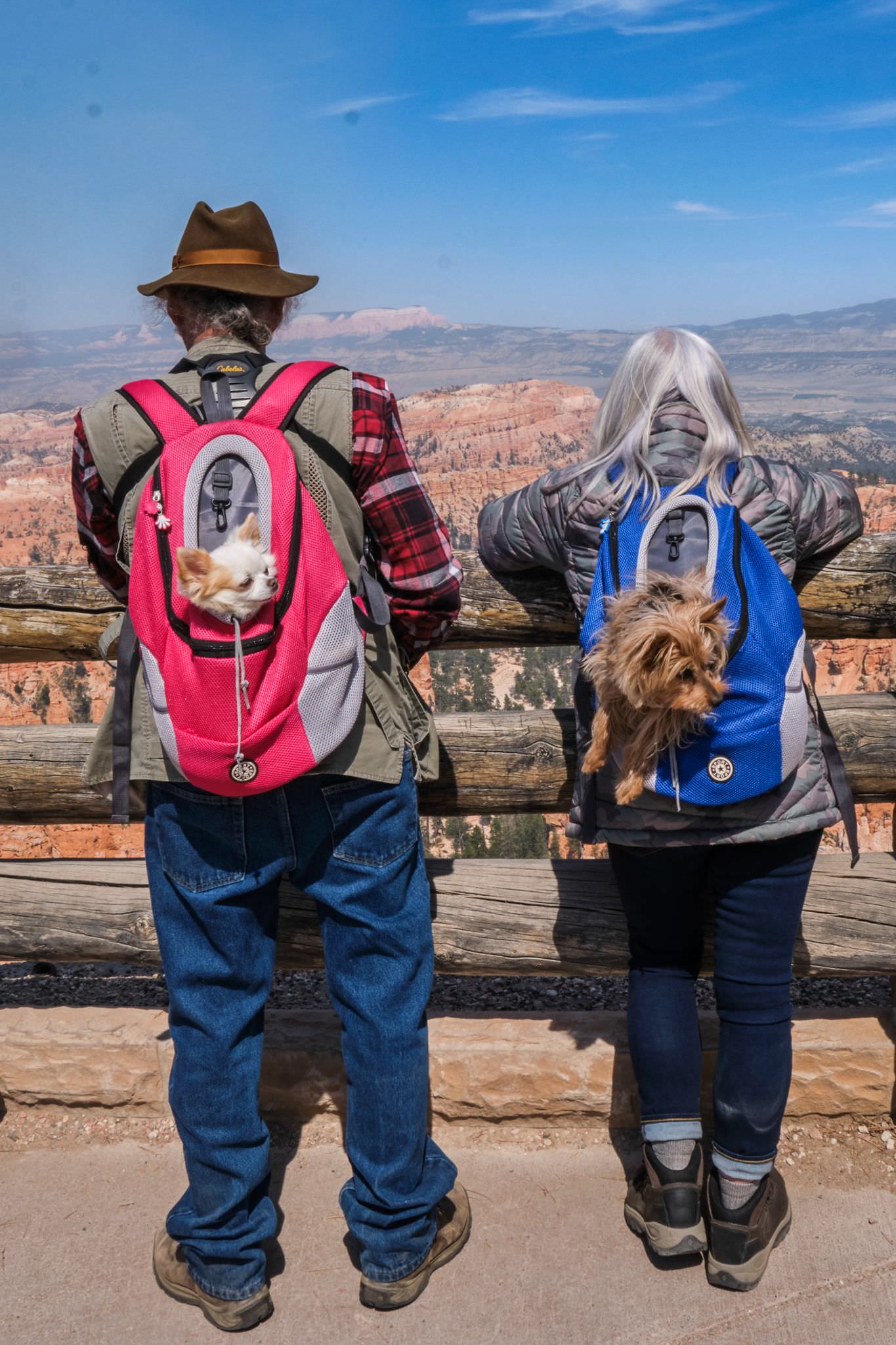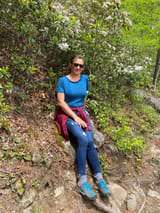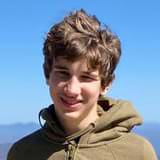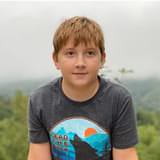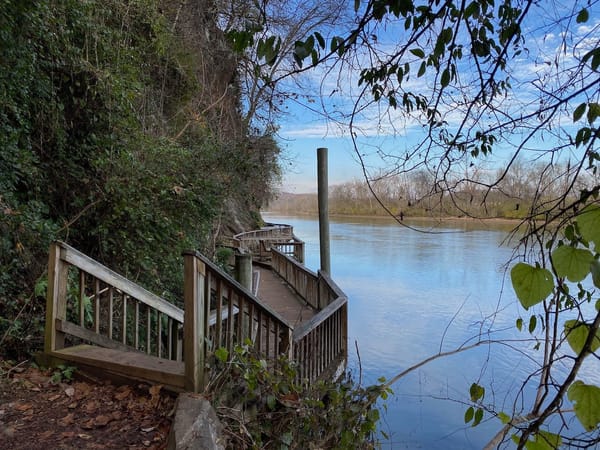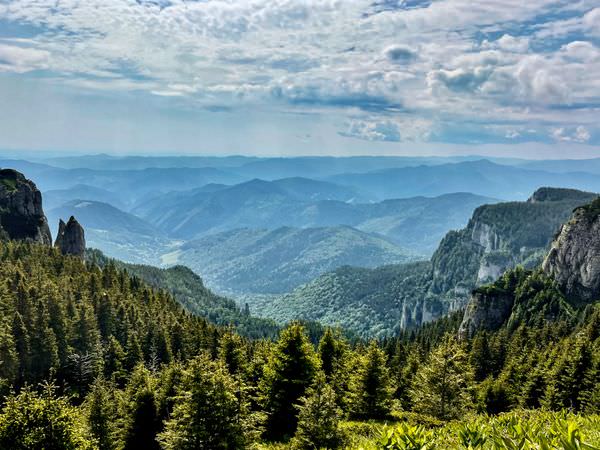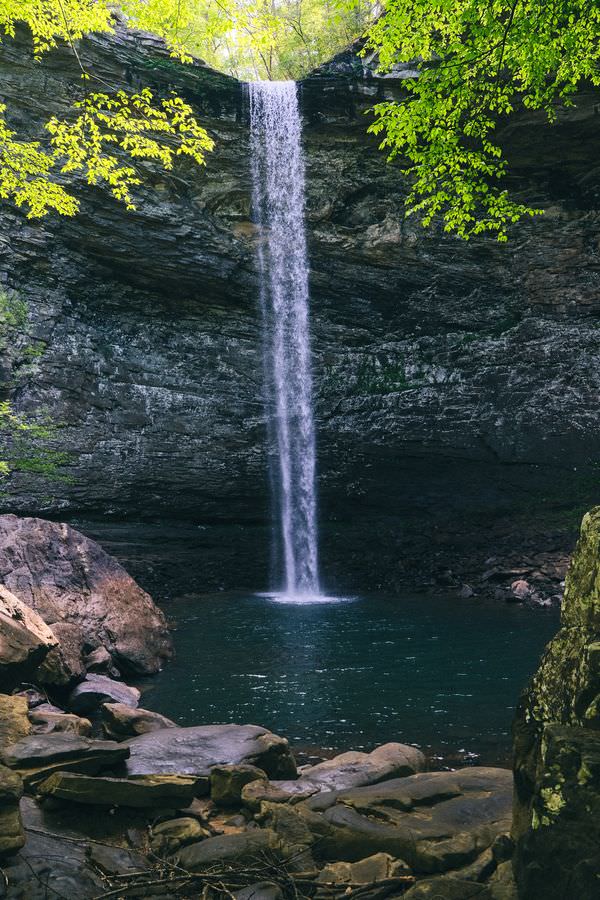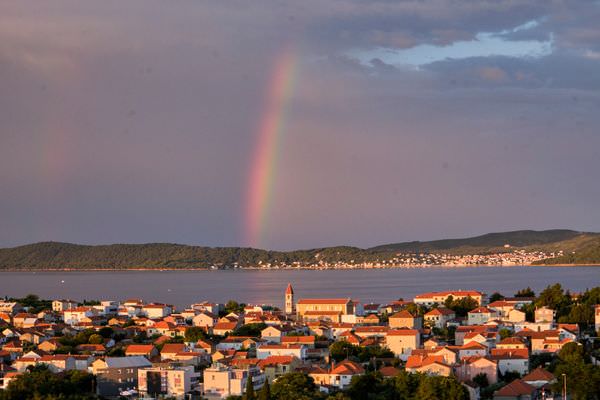Bryce Canyon
Anna and her sons tell of their own experience of Bryce Canyon National Park.
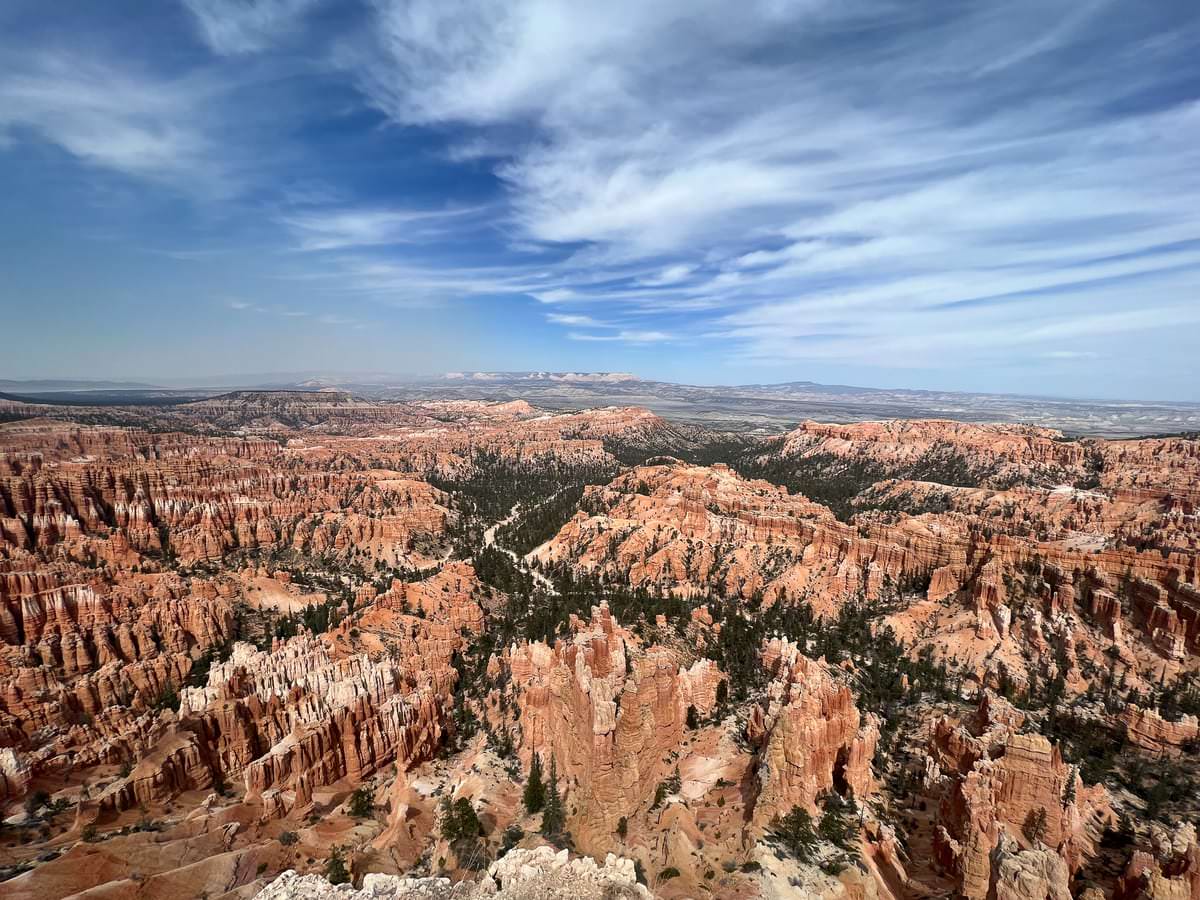
Anna, the Mom
Bryce Canyon is an American national Park located in Utah. It features the greatest concentration of hoodoos on Earth. The hoodoos are irregular columns of rock formed by frost weathering and stream erosion of the river and lake bed sediments. Bryce Canyon is not a canyon, but rather a collection of giant amphitheaters featuring spectacular vistas of red, orange, and white colored rocks. The rim at Bryce varies from 8000 feet (ca. 2,438 m) to 9000 feet (ca. 2,743 m).
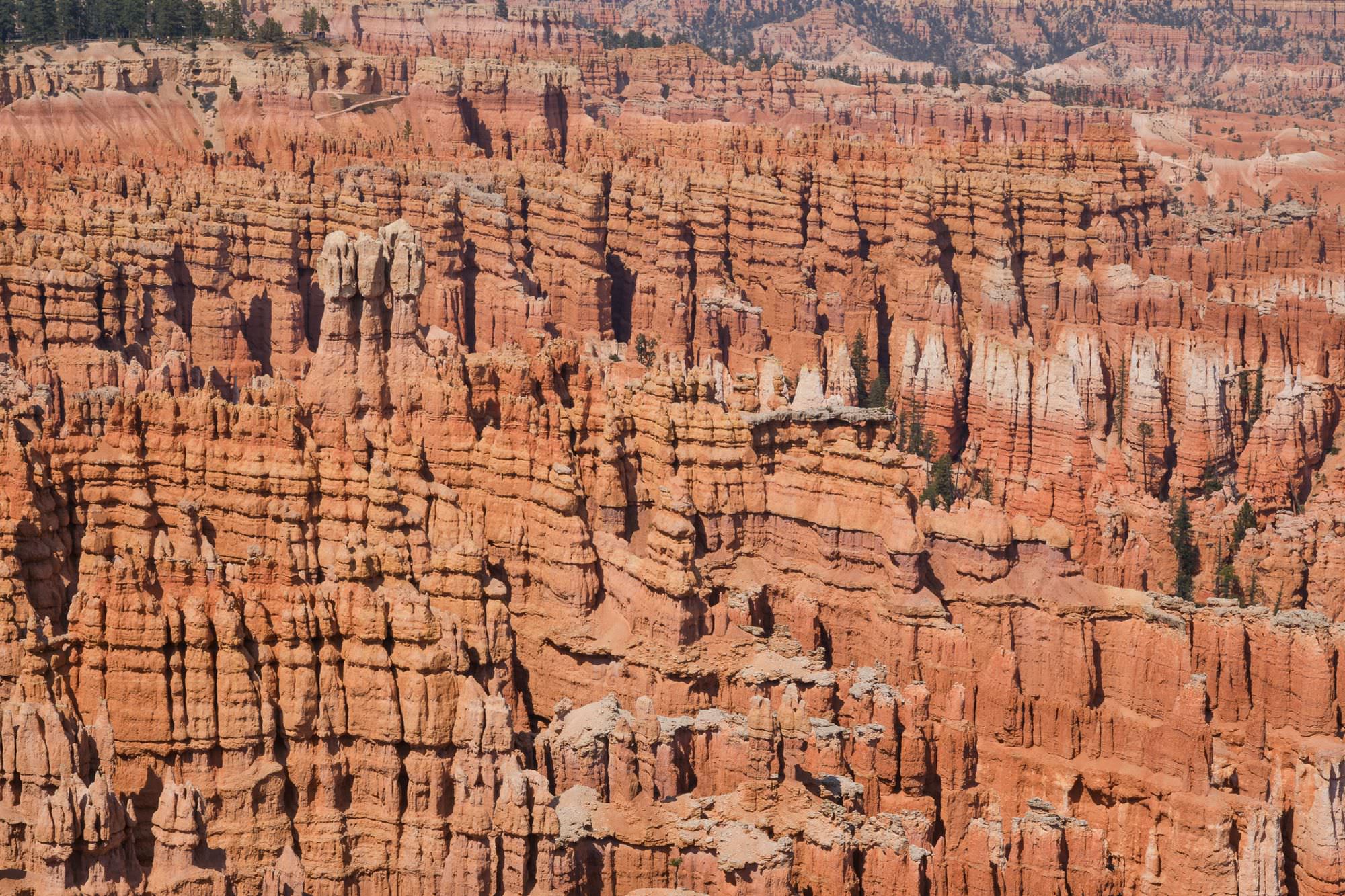
Mormon pioneers, at the middle of the 19th century, settled in Bryce Canyon area. Ebenezer Bryce homesteaded here in 1876 and built a road into the amphitheater for the harvest of timber that can be found nestled in between the hoodoo cliffs; the locals began calling it “Bryce Canyon”.
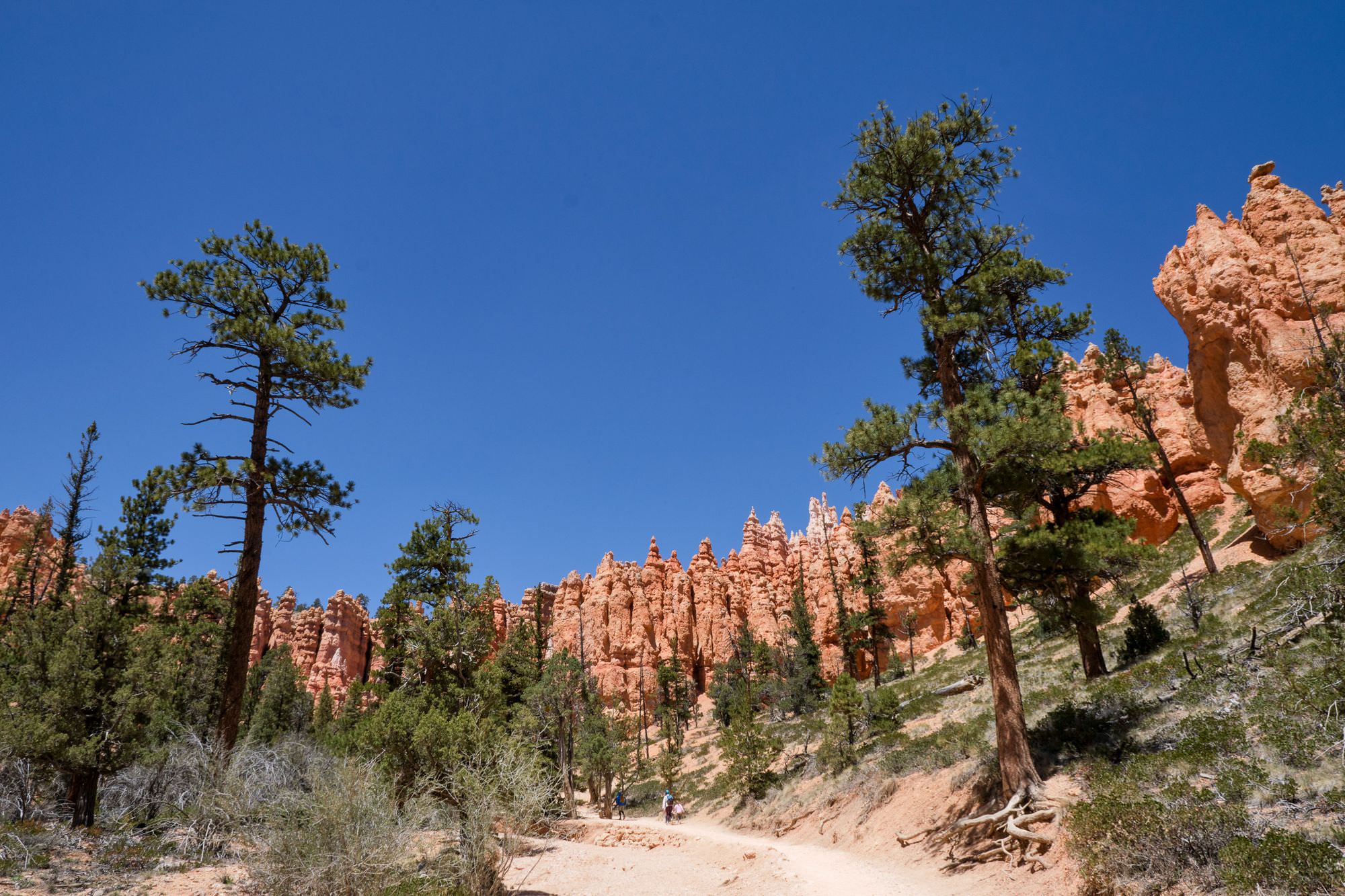
Leaving behind Death Valley National Park, we went to see Bryce Canyon National Park in Utah. After a day in the scorching heat of the desert, with hardly any vegetation in sight, we saw trees again, covering massive mountains and fresh green in the meadows resting at their feet. In the landscape unfolding on both sides of the road, I remember experiencing an accentuated sense of relief. I felt as if I were coming back to life, back to bustling cities, to rivers, to bucolic pictures of cattle grazing contently on large, generous amounts of fresh and juicy spring grass.
When we started driving up towards the top of the plateau where Bryce Canyon is located, we could see, on higher ground, the snow lingering in the forests on the slopes of the mountain. It was good to feel the cold again, and we were grateful that instead of needing to take off as many layers as we could to survive the heat, we could put them on again in generous numbers.
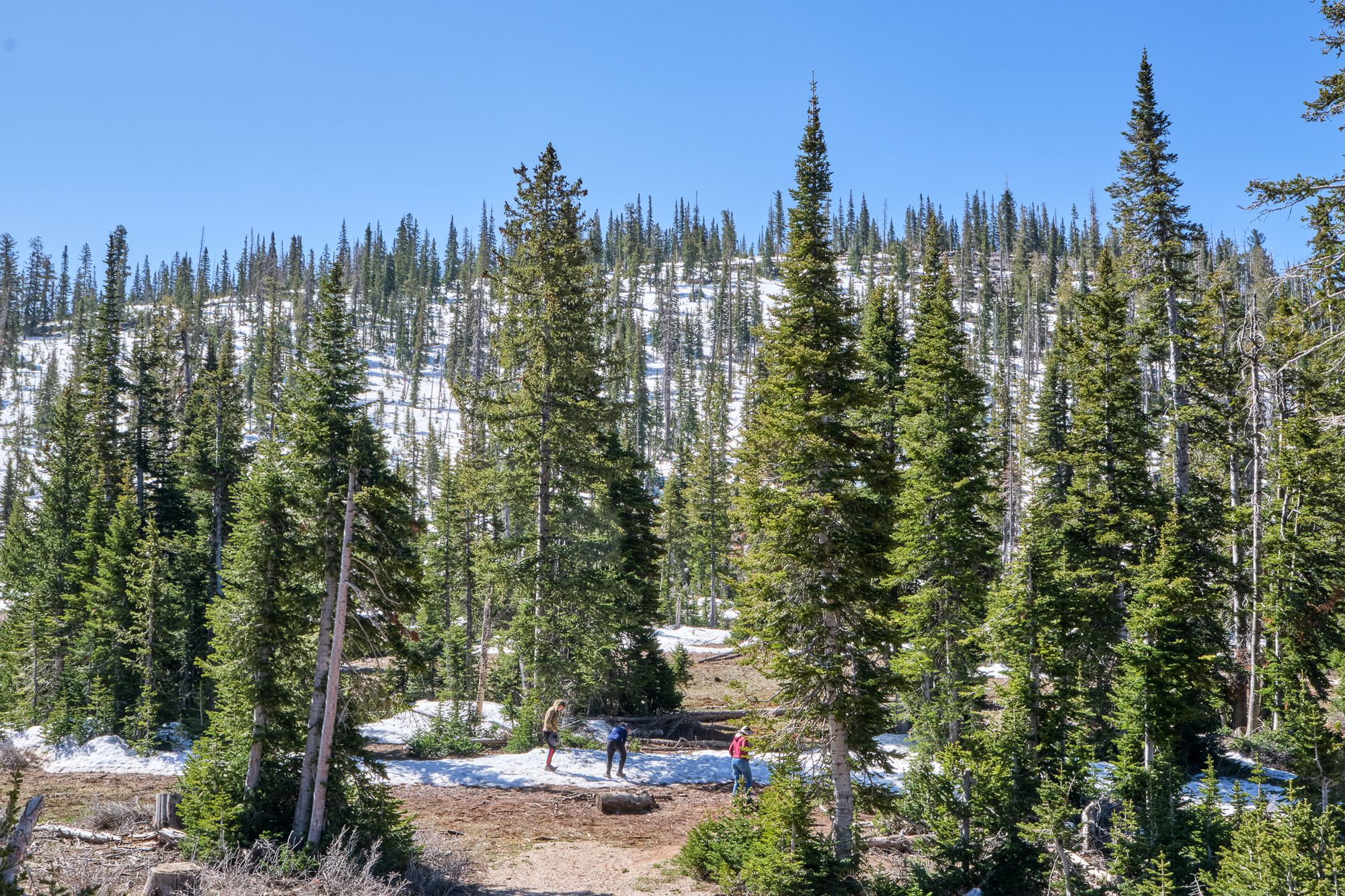
At Bryce Canyon, I loved hiking from Sunset Point down to the bottom of the great hoodoo amphitheater and up again through the Queen's Garden, on the rim at Sunrise Point.
We were glad later on after we did the trail that we didn't start with Sunrise Point first to end the hike at Sunset Point, as it is more logical a sequence. It was purely accidental that we did them in this order, and a happy accident at that. Climbing down Wall Street into the canyon was fun and enjoyable, but we noticed from the people ascending it that it wasn't so easy having to go up.
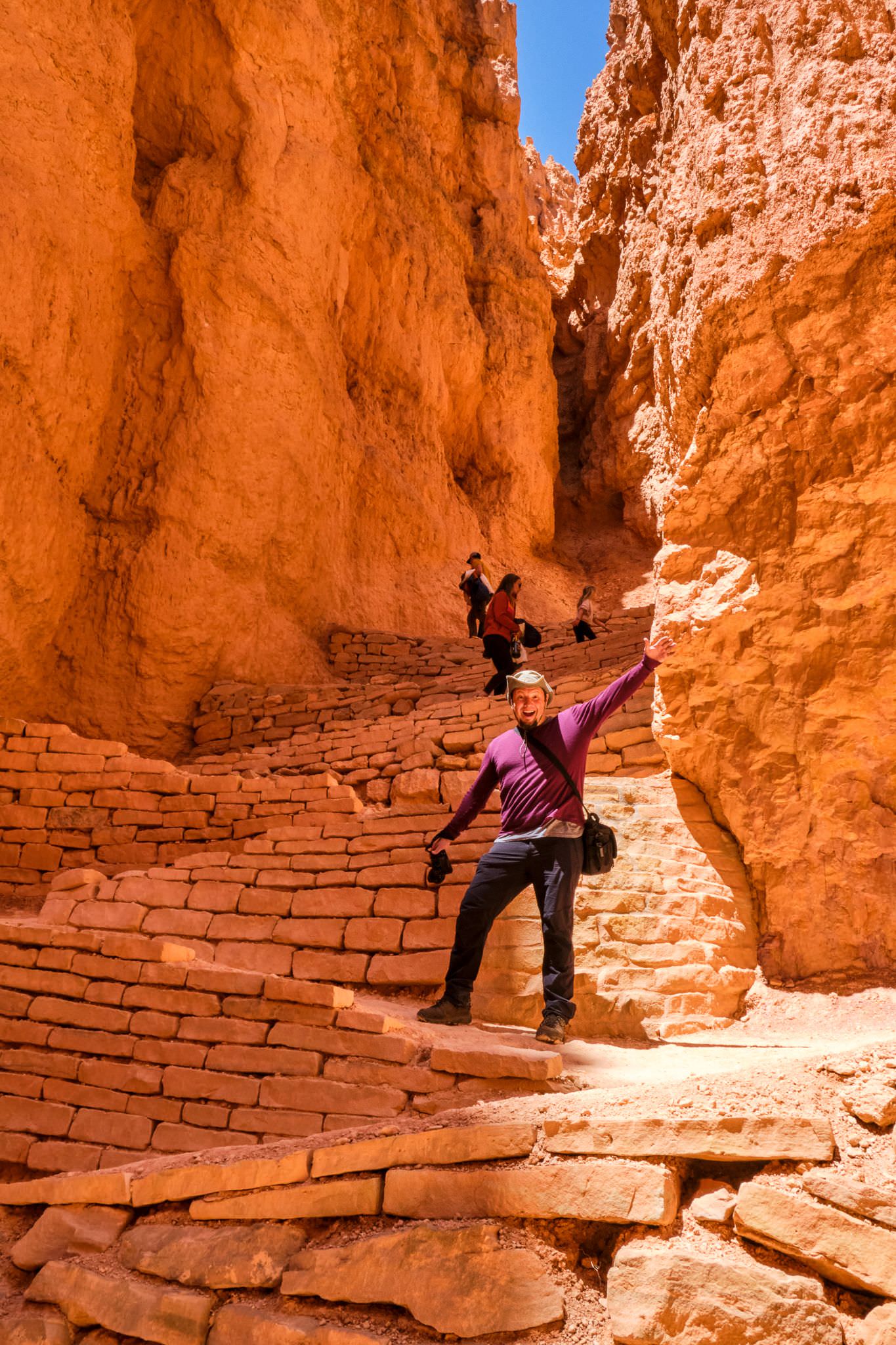
Right at the bottom of Wall Street, the cliffs standing on each side of the path looked very tall and orange. We passed through a narrow opening between the cliffs that felt like a gargantuan door that has been left ajar for some small creature to sneak in or out. Right in front of the opening, two very tall trees guard the entrance. I didn't expect to find them there.
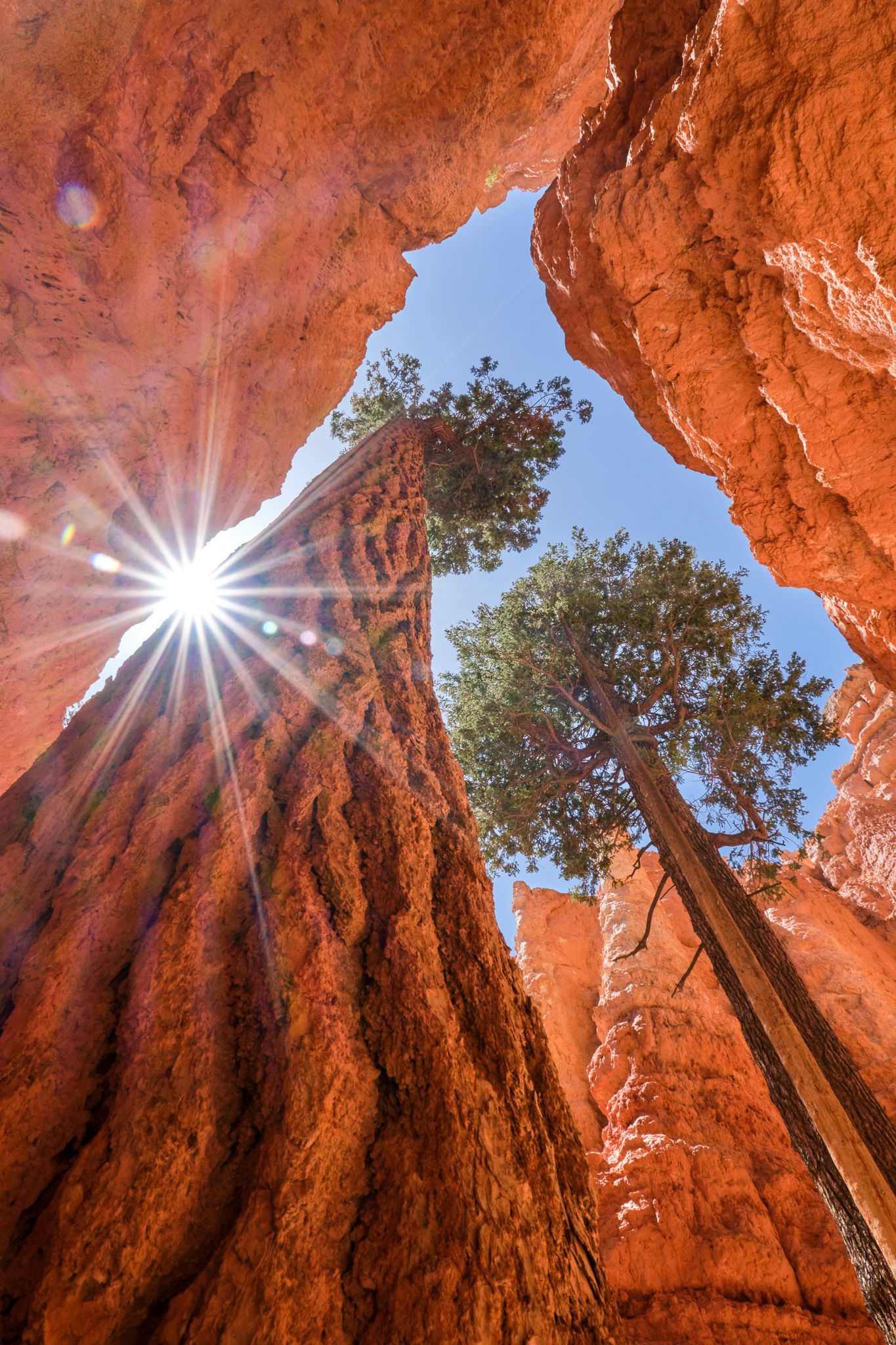
We came out of the opening to the dried bed of Bryce creek, with fir trees growing on each side. Using the dried creek as a path, we soon got to a horse trail that was winding up to the Queen's Garden. We haven't seen any horses, not close by nor in the distance, so we decided to go on this trail instead of looking for the one that only people use. Down in the valley, the trail looked large enough to accommodate people and horses going side by side, but as we went up on it started becoming narrower. Fortunately, by the time we met a group of people riding horses on this trail, we arrived at a place where we could climb on the side of the path to let the horses pass.
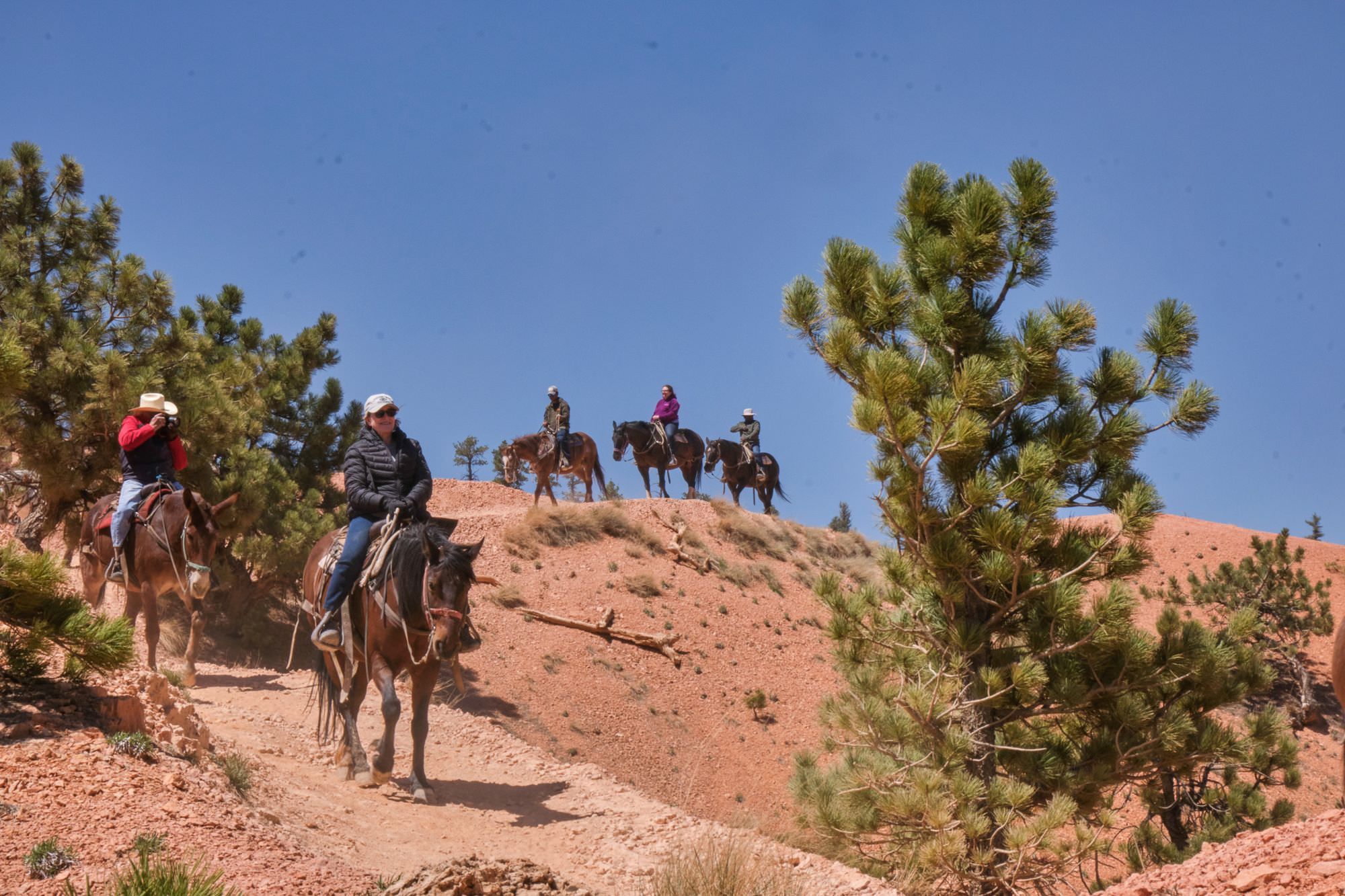
After we got to then end of our trail, at Sunrise Point, we strolled on the Rim Trail back to Sunset Point where we started our descent. The brightly colored columns of rock glimmered in the afternoon sun and looked majestic and beautiful. We saw a funny tree that looked as if it was sitting on the tips of its toes, struggling to see what was going on into the crevices of the Queen's Garden.
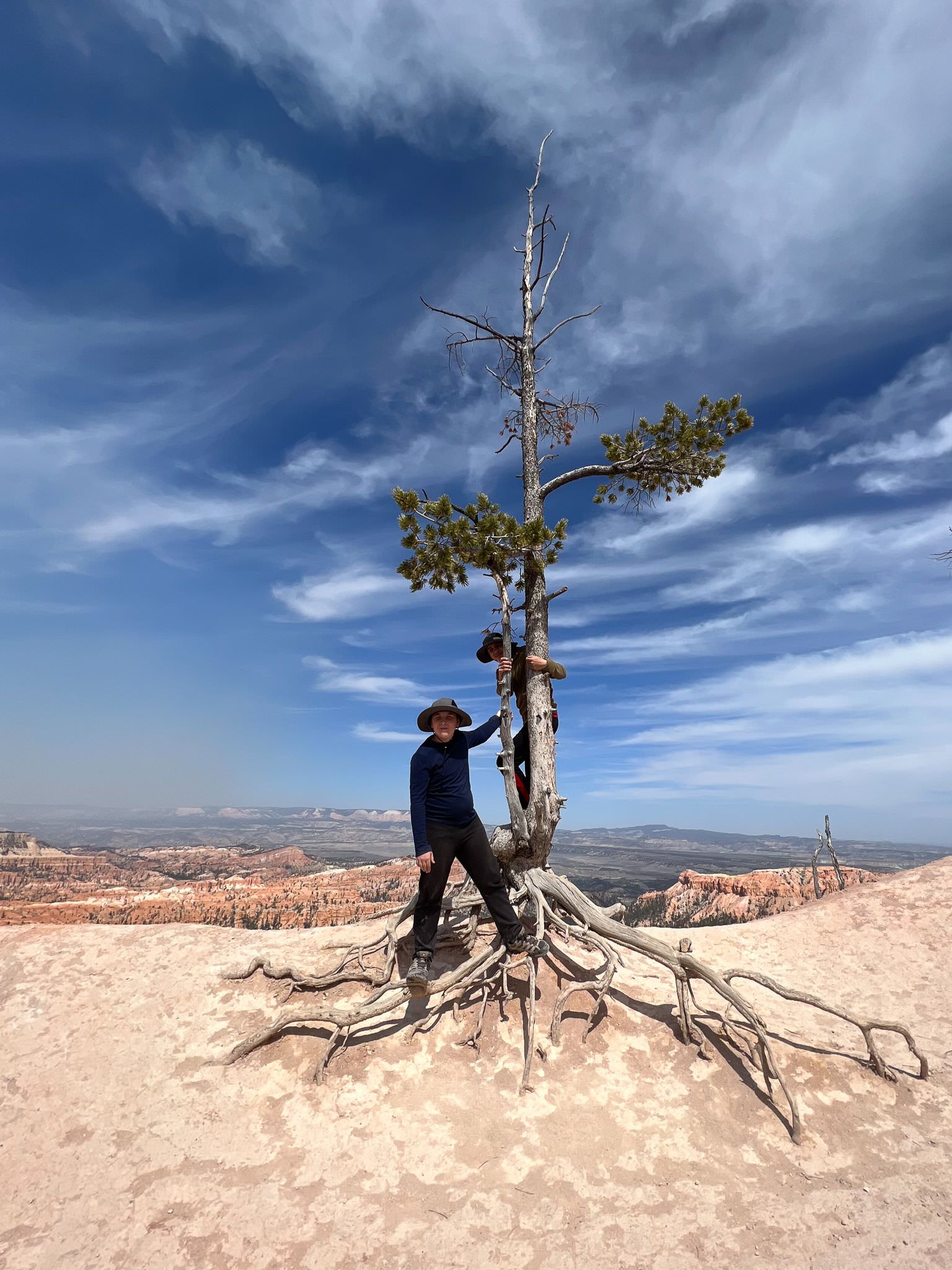
From the Sunset Point, we drove to our last stops that were very short hikes to Inspiration Point and Bryce Point. In these two spots, we admired for one last time the fiery spires of the hoodoos glimmering in the soft light of the afternoon sun.
My heart was filled with awe at this spectacular gallery of sculptures, testifying to the beauty and creativity of our amazing Creator. I am grateful for the opportunity that was given to my family to go and enjoy this wonderful piece of art. Looking back at it through the pictures we took there, I am filled with joy again and again. I am filled with a euphoric expectation of all the beauty that our heavenly Father has in store for us to explore for a whole eternity.
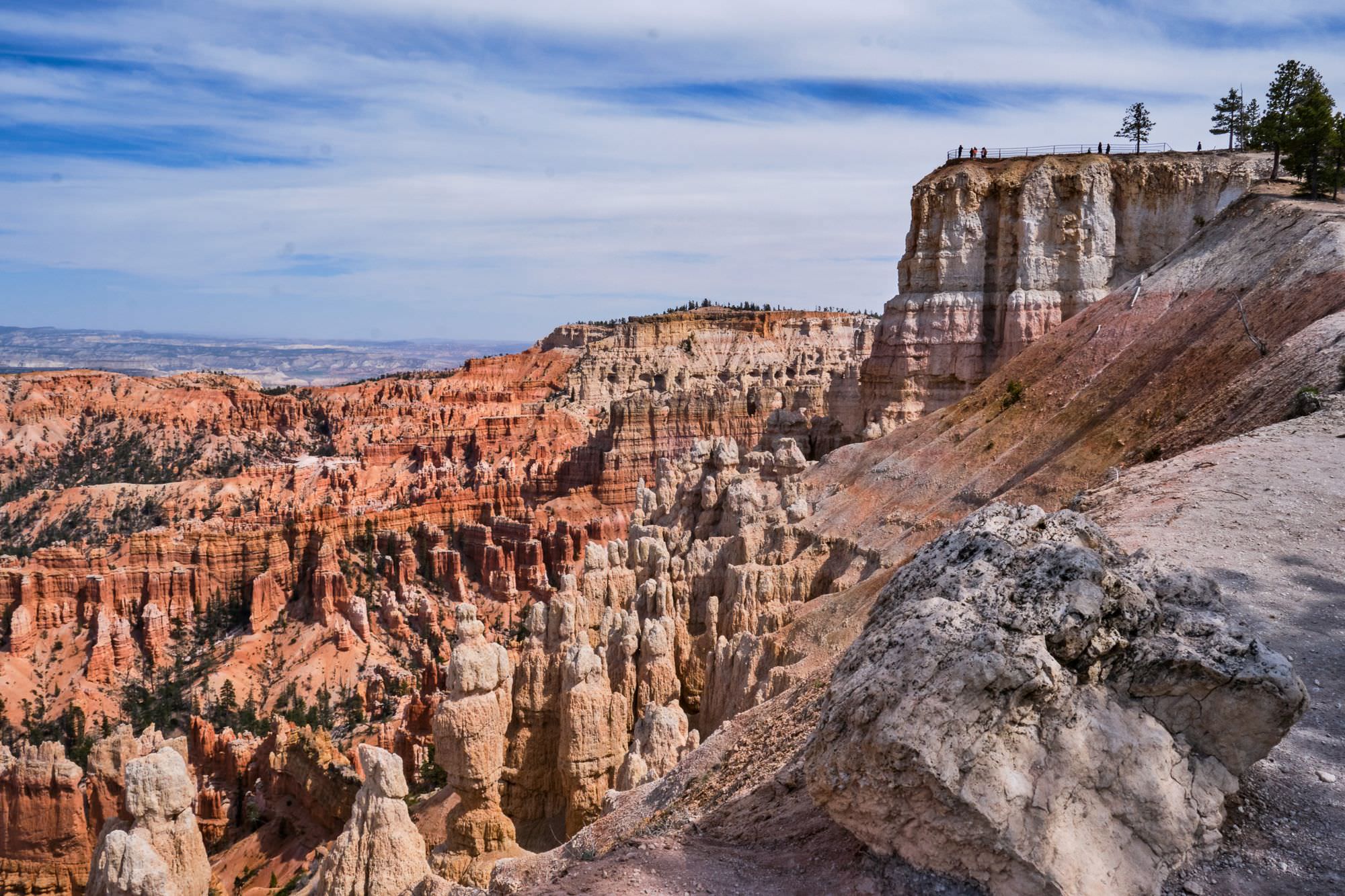
Mihai, 14
Bryce Canyon National Park is a 35,000 acre (about the size of Disney World) national park in the state of Utah. It was discovered by and named after Ebenezer Bryce, a Mormon who homesteaded there. This national Park receives considerably fewer visitors than either Zion or the Grand Canyon, mostly because it is more remote and less known than the other national parks.
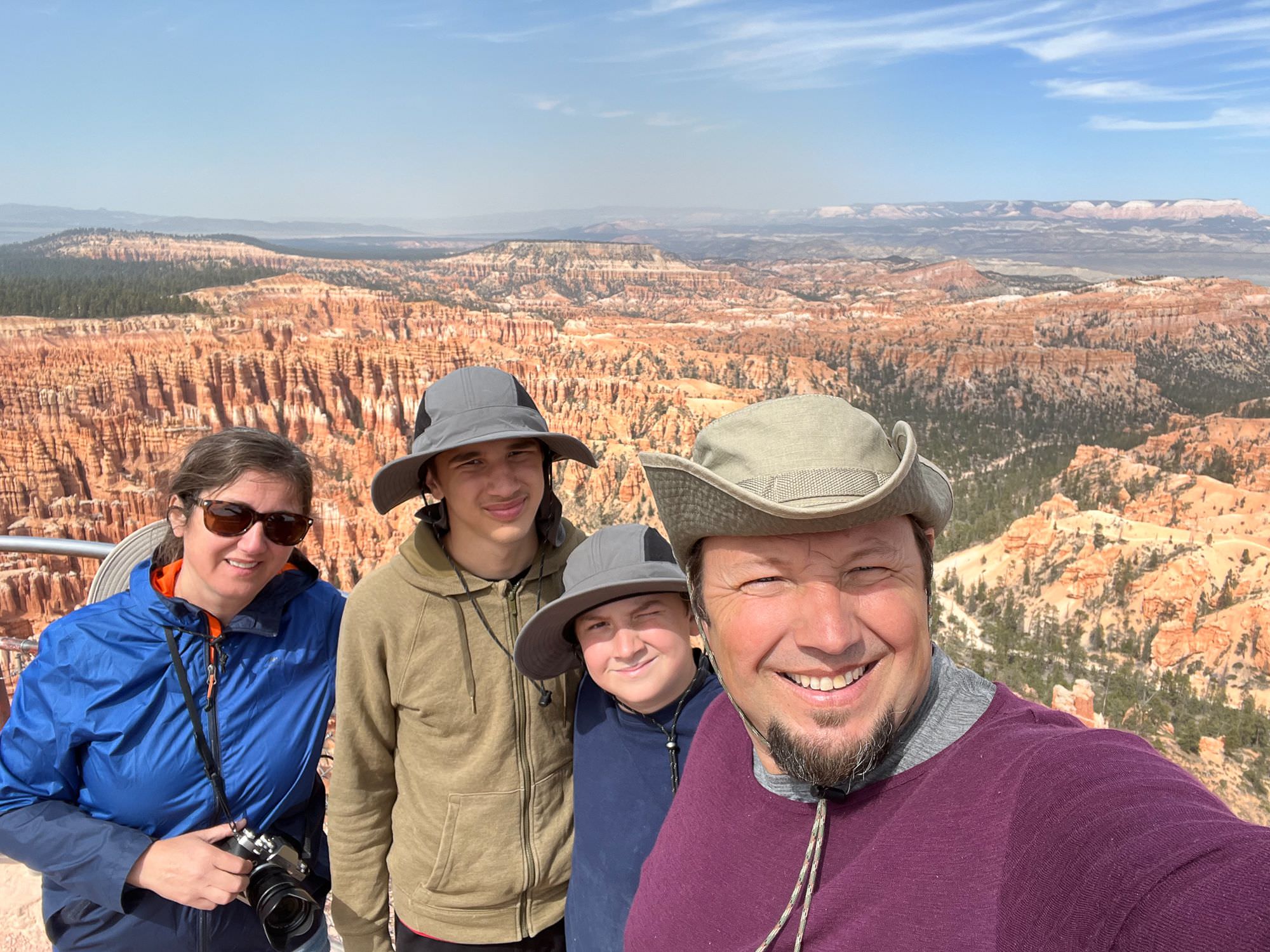
One of the most interesting things to do at Bryce Canyon is the Navajo Loop and Queen's Garden trails. These trails intersect, and you can use the Navajo Loop trail to get to the Queen's Garden. The main attraction of these trails are the tall rock pillars known as hoodoos. Water gets into crevices between rocks and solidifies as ice in the winter. The ice expands and cracks the rocks, breaking them off and leaving hoodoos behind.
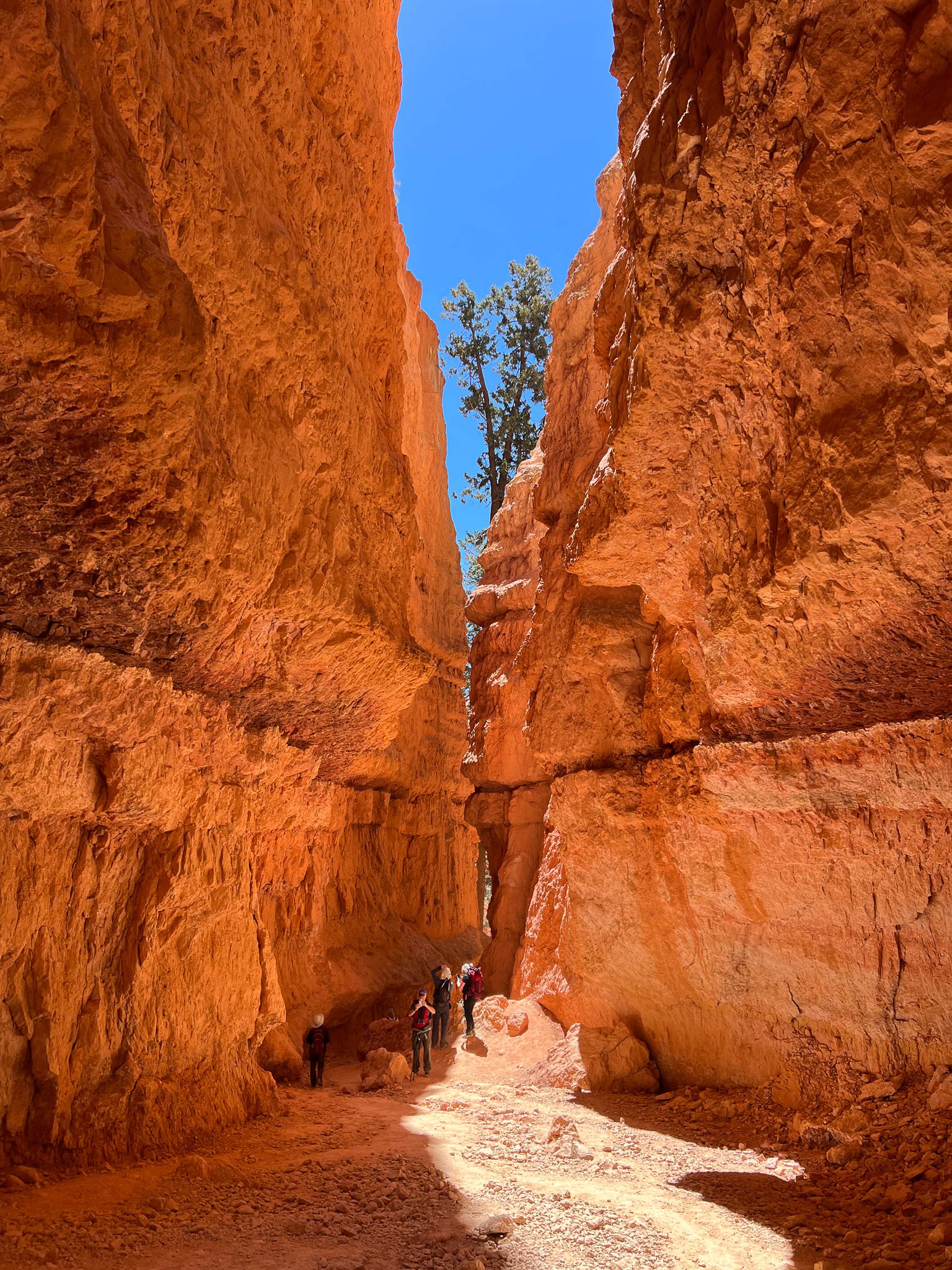
We first descended Wall Street, an aptly named trail that took us through a small canyon, with dusty red walls on either side. In this small canyon, we found a tree that grew out of the dusty red ground and poked its top out of the canyon. Later, the path leveled out, and we hiked through a field of short, dusty bushes.
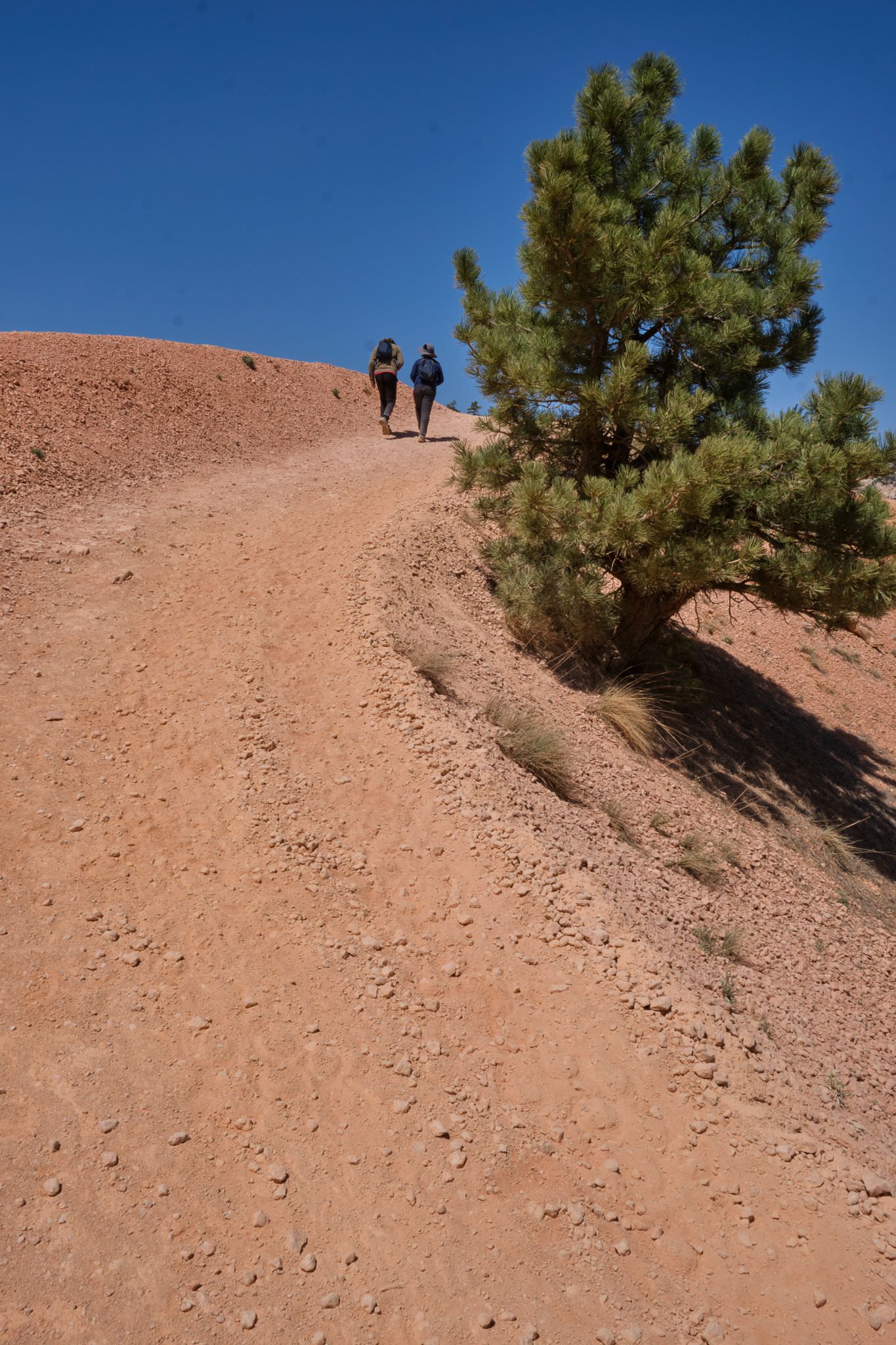
Next, we went on another trail that took us to the Queen's Garden, a large collection of hoodoos in one place. We went on a trail that is frequented by horses, we could tell by the poo that dotted the path.
After looking at the large group of tall hoodoos that form the Garden, we continued on the path and got back to the canyon rim.
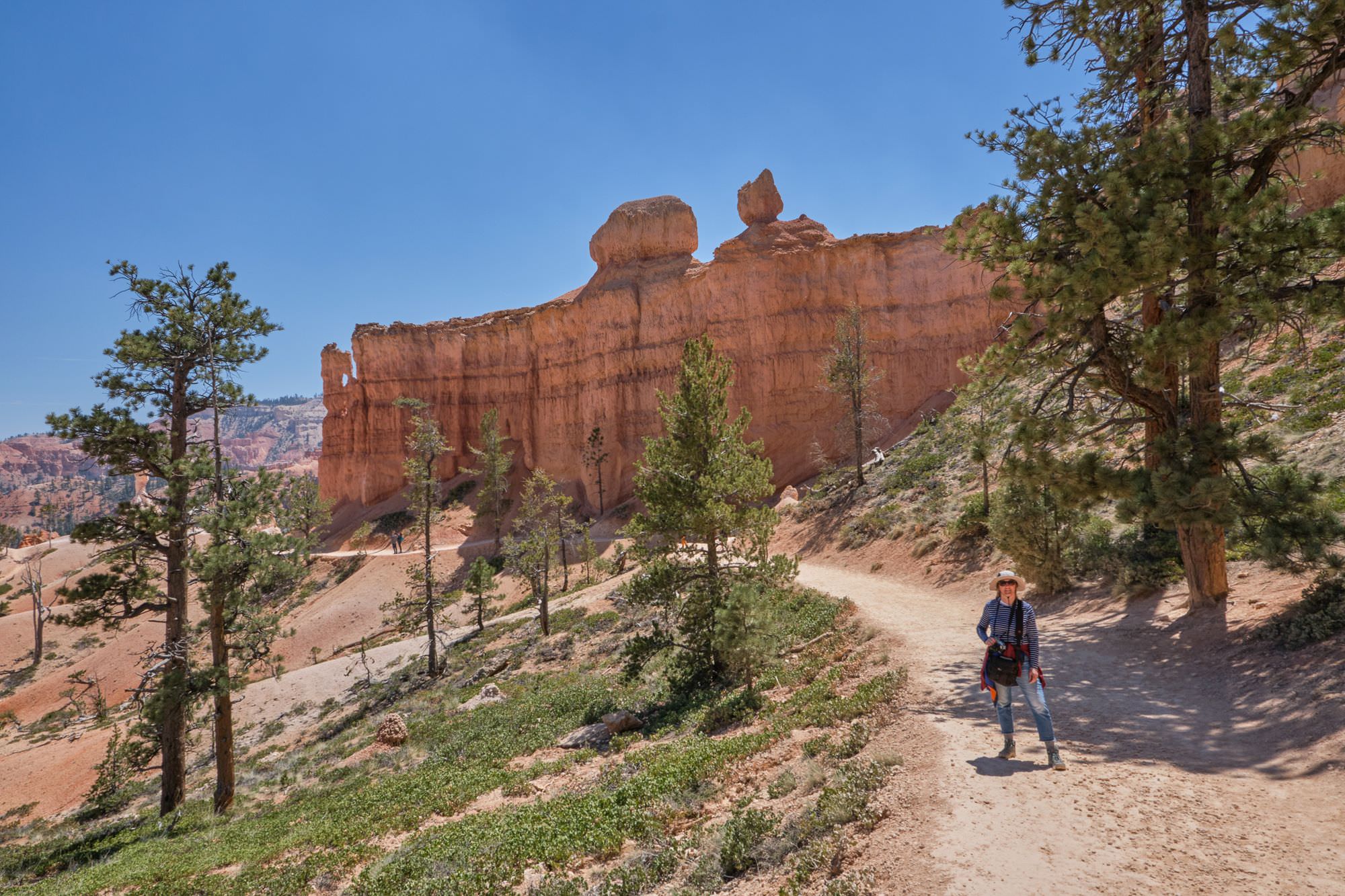
Later, we visited Inspiration Point, where we could see an overview of the entire canyon. The sandstone is red and sometimes white, and many trees of different sizes were at the bottom. The canyon walls weren't as steep as the Grand Canyon's, but I still wouldn't like to fall down there.
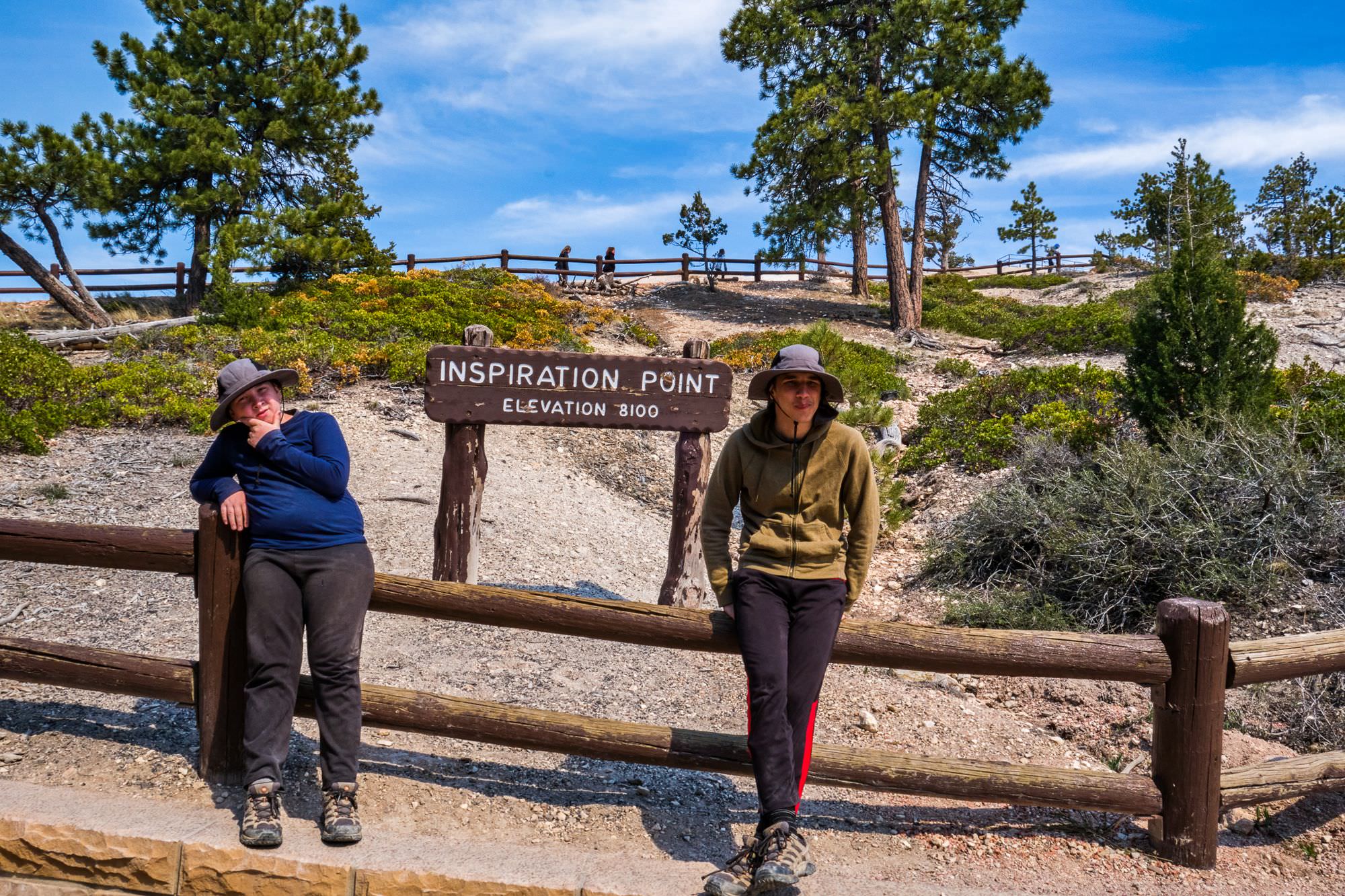
Nearby, we heard a tour guide talking about the Ponderosa Pine found there, which smelled like vanilla (or butterscotch) when it was warm outside.
Bryce Canyon is:
The tall hoodoos standing on the edge of the cliff;
The red and white sandstone decorating the canyon sides;
The horses plodding their way past us;
The disreputable odor eminating from the refuse of the equine species;
The dust-blown prickly bushes thickly lining the canyon floor.
I would go again to hike other trails.
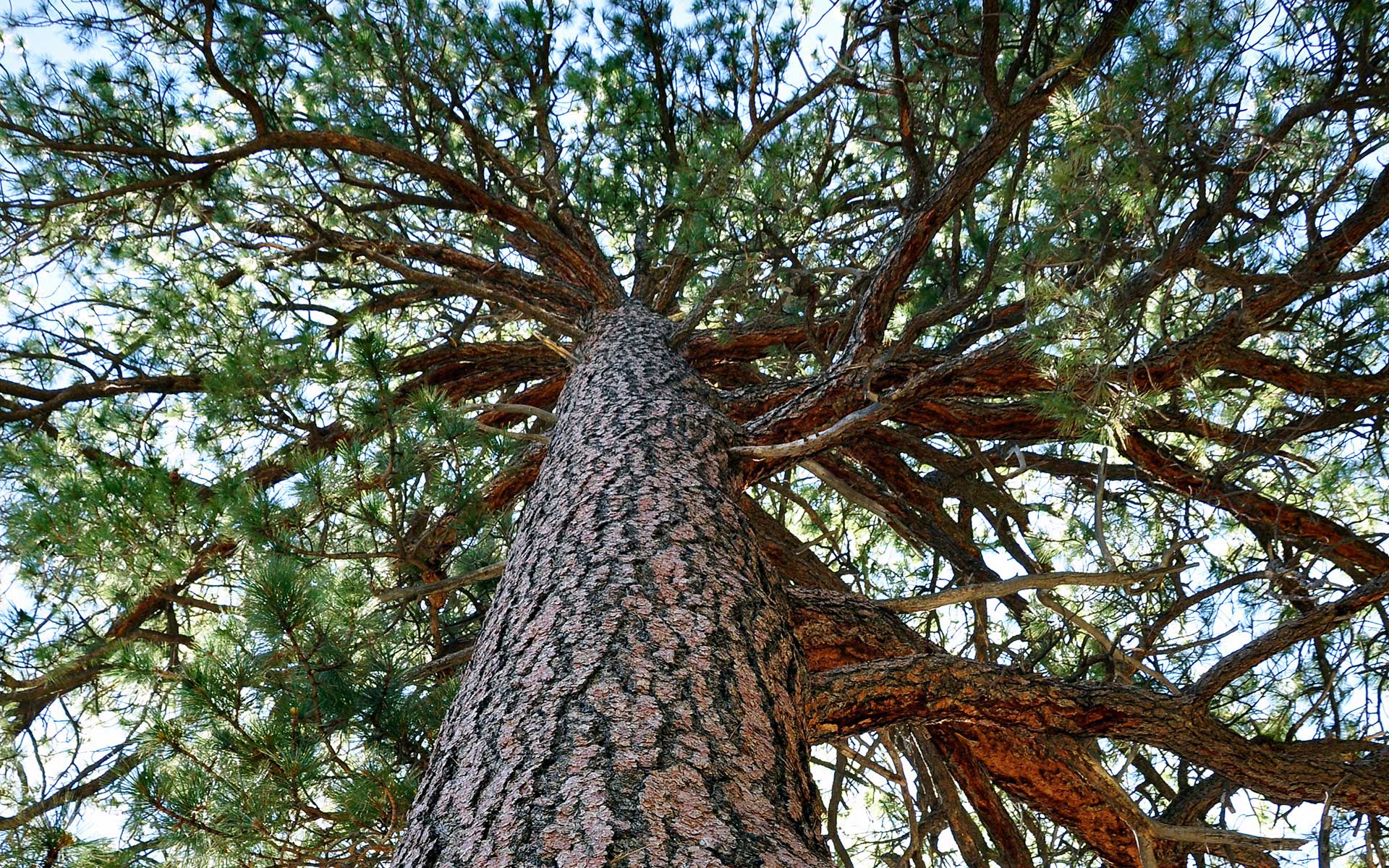
Paul, 11
My favorite stop there was the Queen's Garden and the Navajo Loop trails. These magnificent paths go through a ravine to an even bigger path that headed to a small horse trail. On the way down the ravine, we had to march in single file when we got to the narrow pathway that lead through the canyon's side.
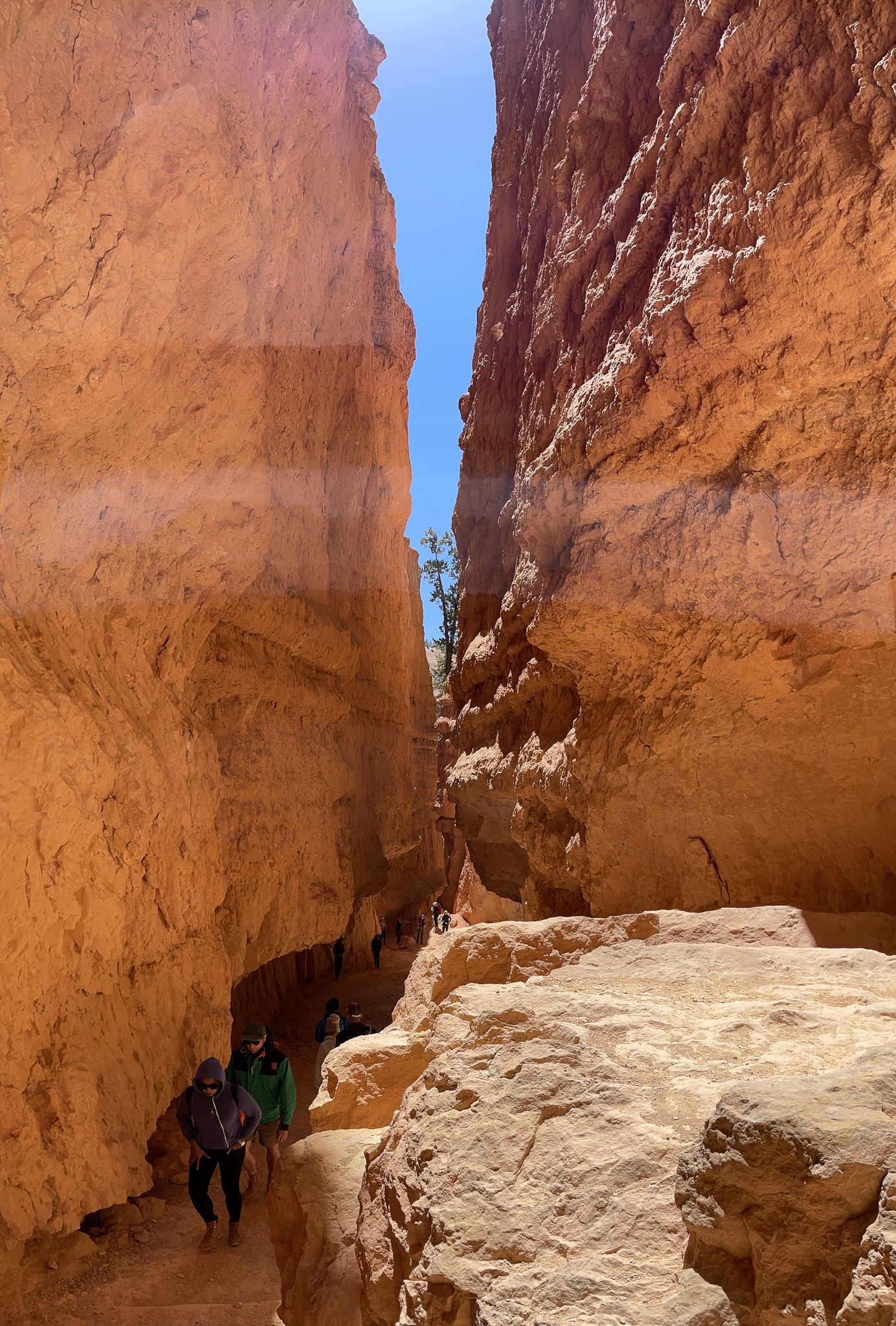
When we exited the ravine, we had two choices: up or straight. We decided that the straight path looked like the obvious choice, but it soon became very difficult.
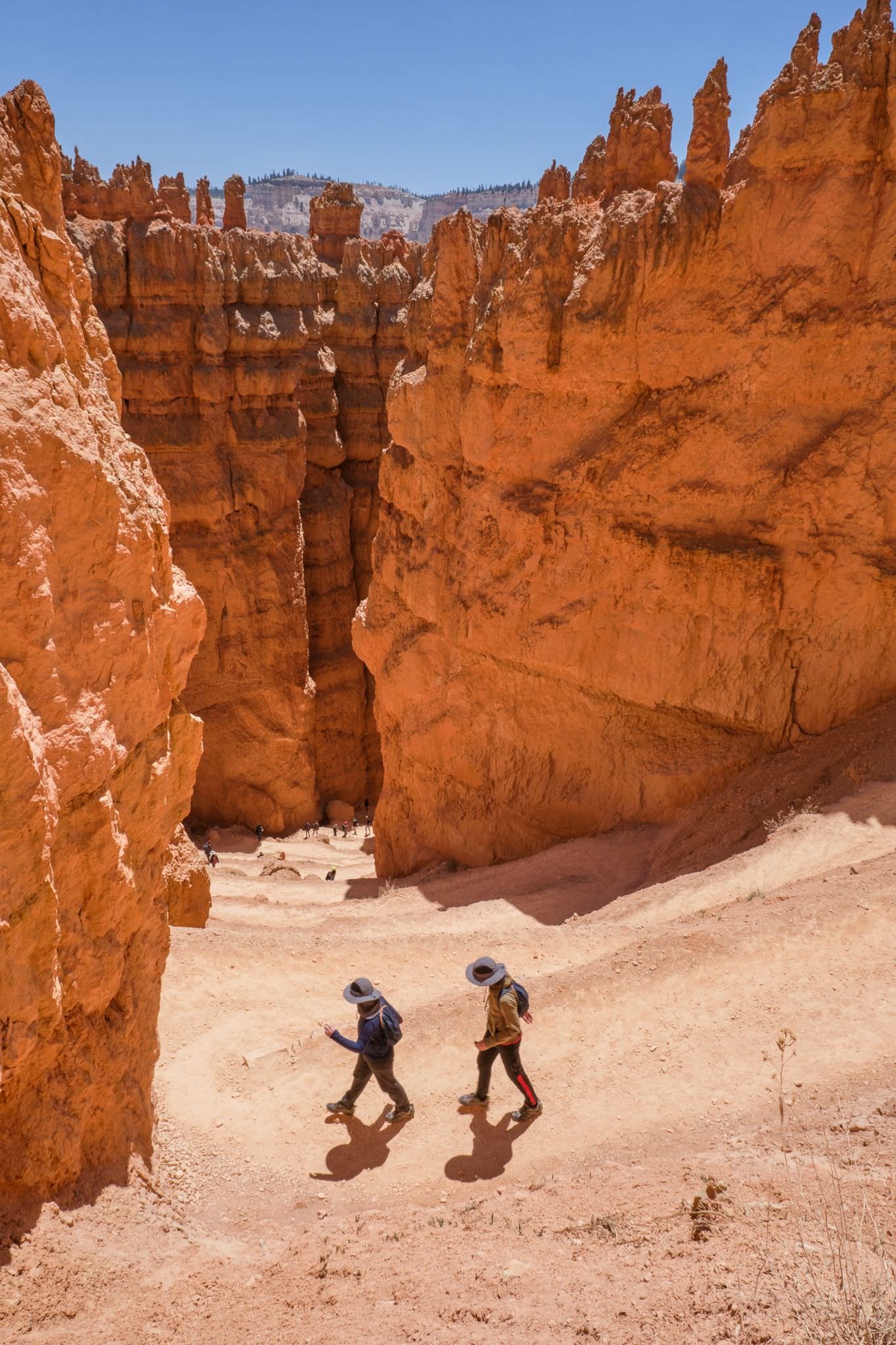
Finally, we were rewarded with the sound of hooves. Over the horizon, we could see a tour guide on horseback leading some tourists who were likewise on horseback. After a little while we were back at the very start of the trail where the epic saga of the hike began.
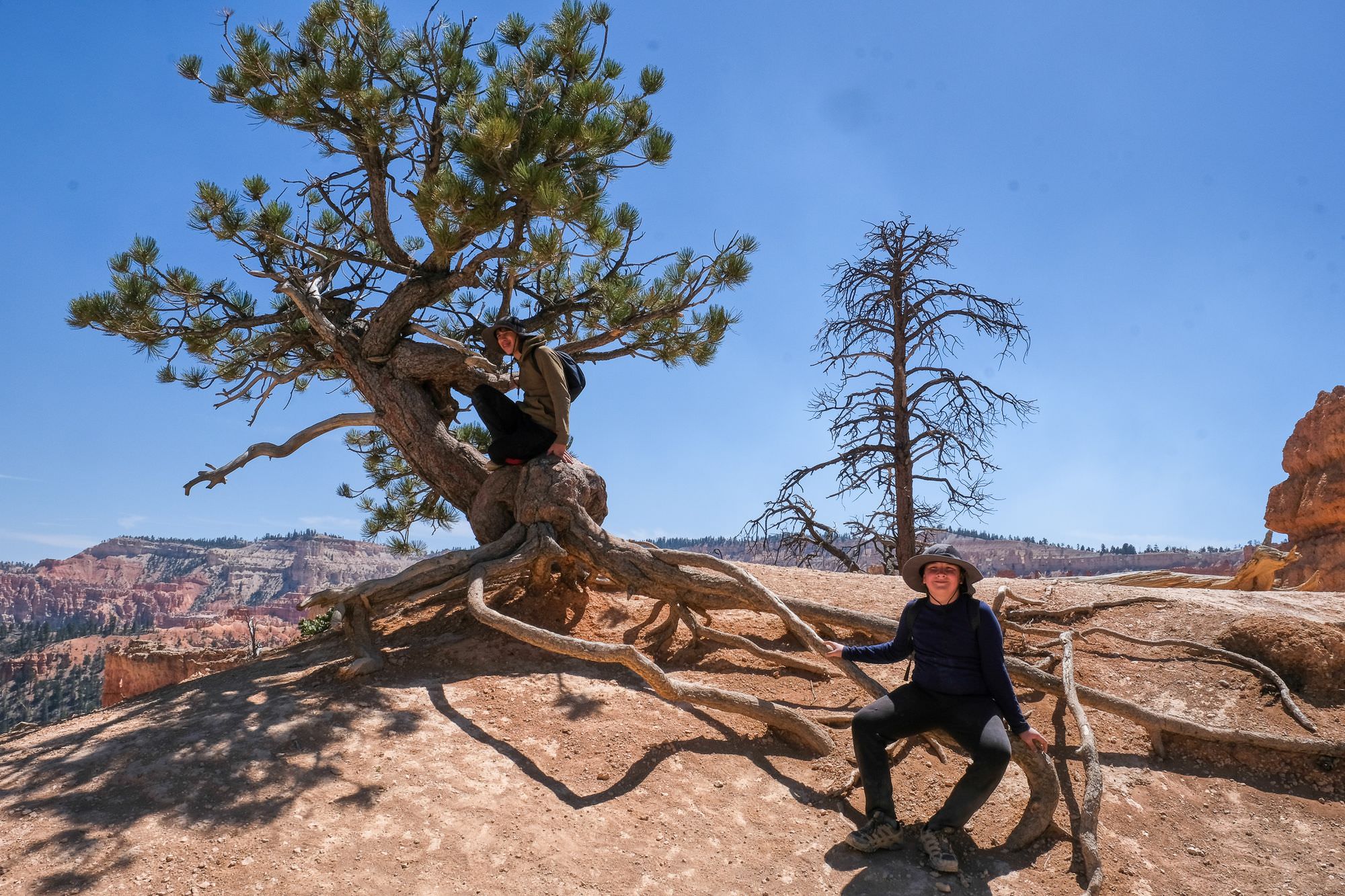
Another of my favorite stops was Inspiration point. This was an overlook of the Bryce Canyon and was very high up. When we went here, we had to climb a hillock to reach the overlook. When we looked at the canyon, I could see its red and yellow surface of the hoodoos glinting in the sun.
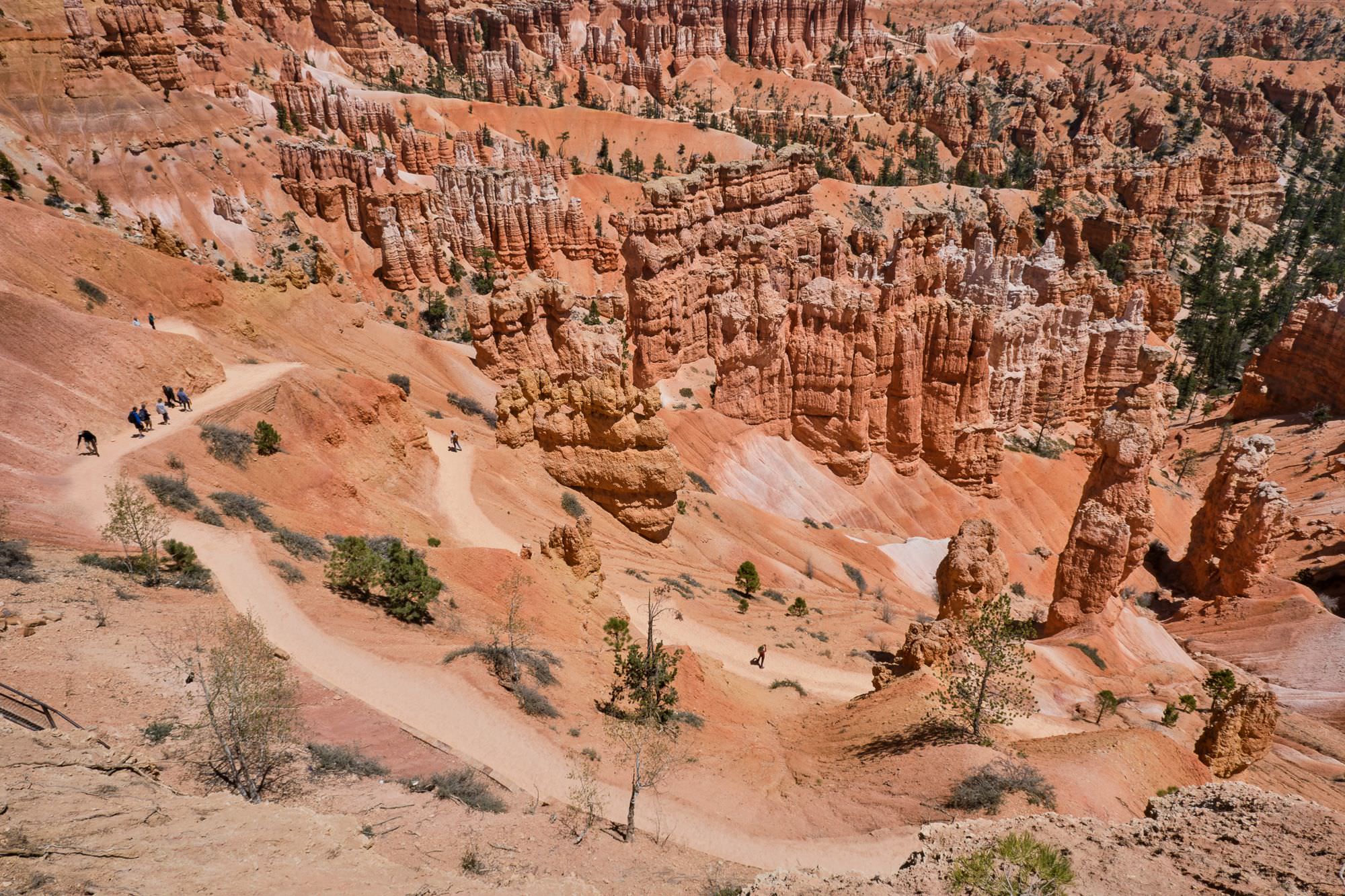
We overheard a guide saying that the nearby Ponderosa Pine when they were exposed to heat they would smell like vanilla. I tried smelling one of the pines, but sadly, it was not warm enough for the odor of vanilla to penetrate its bark.
I would go again to the Bryce Canyon to maybe skydive into it.
Bryce Canyon was for me:
The rocky path of the Queen's Garden trail winding down the canyon;
Pebbles flying onto the lower sections of the trail as someone trips;
The sound of hooves as horses wind their way down the steep paths of the Navajo Loop.
The “Graveyard of hats” with its hat repellent winds threatening travelers' head coverings.
A dust cloud ominously rising in the distance, signalling the approach of another human being or wild animal!
